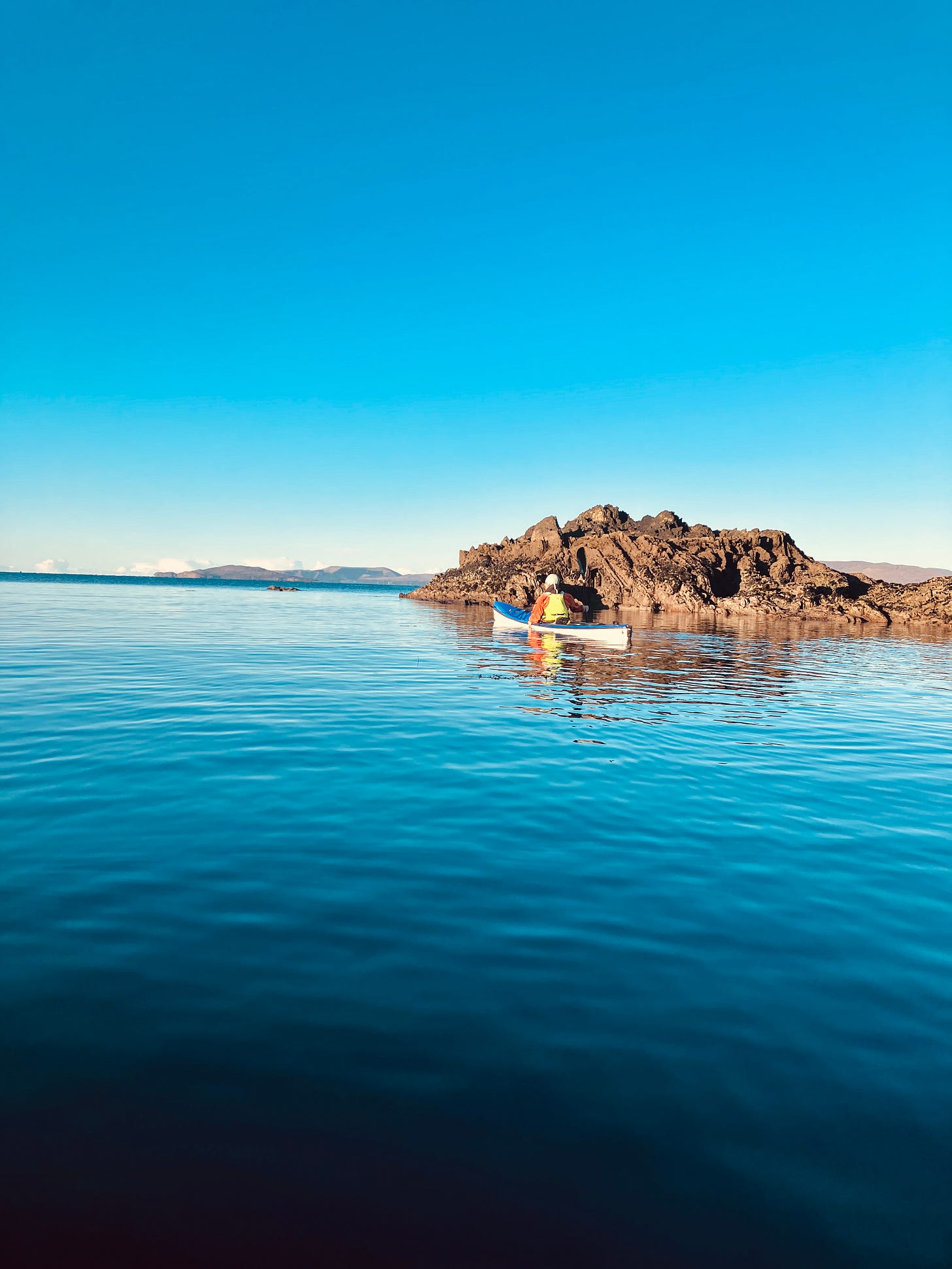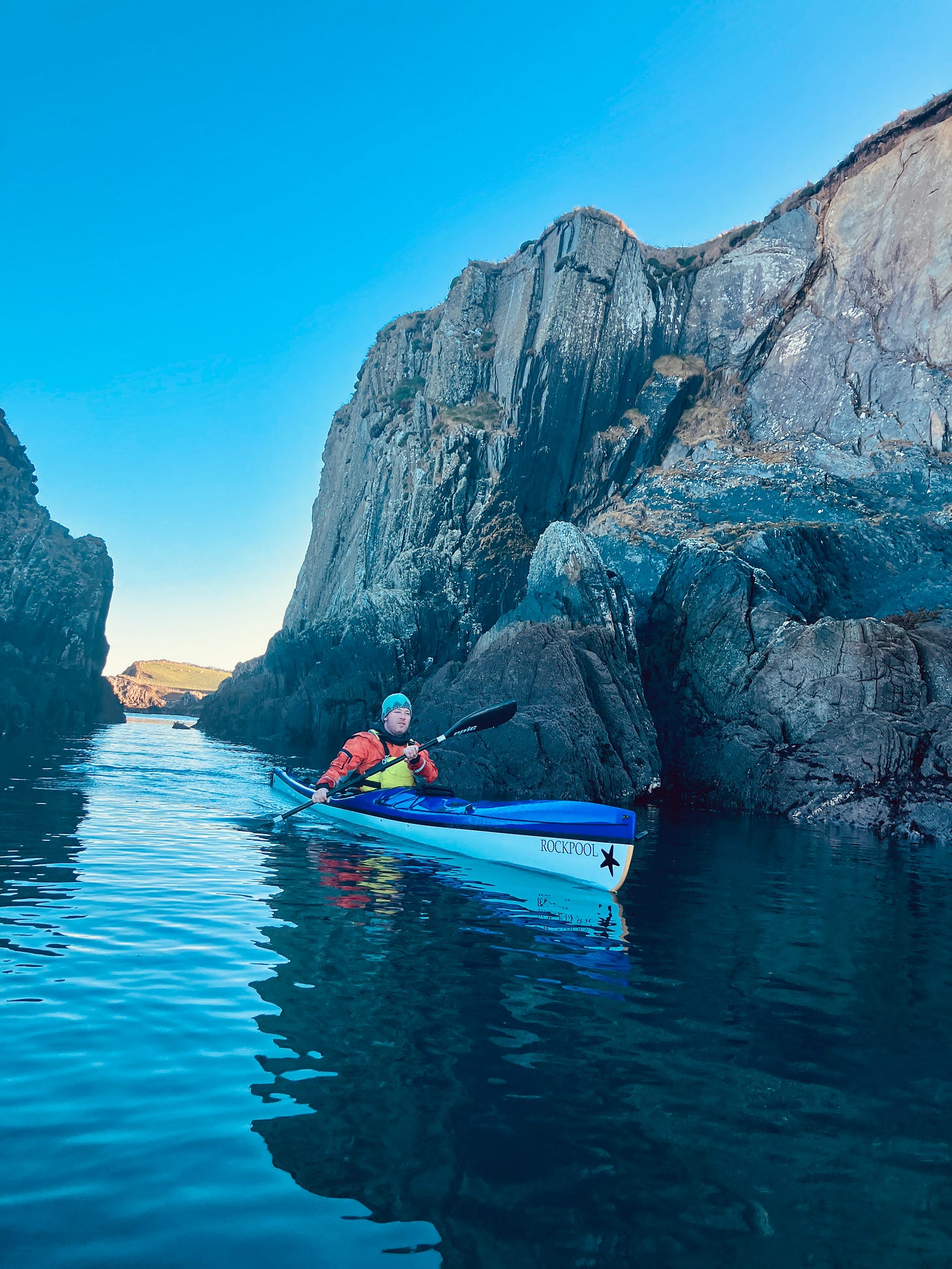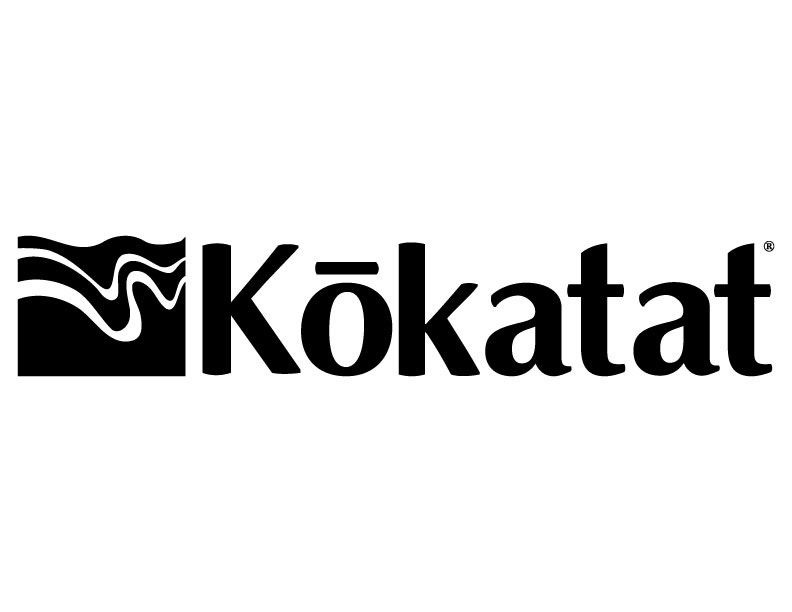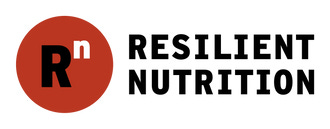The talk test
The Lap no. 24 - D-Day - 6 Months
After a week off the water, fighting a nasty cold, I had a chance to get out for a frosty morning paddle with David, from my course a couple weeks back. This was my first time paddling with another Rockpool Taran. It was a thrill to glide along at 4.5 knots and look over to see my buddy not only keeping up but pulling ahead, forcing me to dig deep.
The speed of a Taran can make it an antisocial boat. Like me, David does most of his paddling alone. For two paddlers used to silence, having a chat on the water feels as novel and refreshing as having someone there to help you carry your boat. A good chat not only helps pass the miles on a long slog, it’s a good way to monitor your pace and performance with something sports scientists call “the talk test.”
The talk test
If you don’t have a heart rate monitor, the talk test is a simple way to assess your training intensity. If you can carry on a normal conversation, using complete sentences, then you’re training at a pace you can sustain——below your aerobic endurance zone, in technical terms. If you find yourself sucking air to catch your breath before speaking or unable to finish your thoughts, you’re going too hard (or hard enough depending on your goals for the session). On a long distance endurance session——like a halfday paddle——you want to keep it light and be able to pass the talk test.
The nose knows
If you’re on your own*, you can assess your training intensity with the nose breathing test: Keep your mouth closed and breathe through your nose. If you can’t keep this up and start sucking air, slow down.
My pace next year is going to be more like a through-hike than a series of marathons. Keeping the intensity low is key to injury/burnout prevention and energy conservation. The purpose of building an aerobic base is to go faster at the same low intensity.
*You could also talk on the phone, if that’s your thing.
The talk test for hypothermia
On our level 4 course, David played the hypothermia victim and I was the medic in a training scenario. He stayed in character the whole time, muttering and not making much sense.
In real life, conversation is one way to diagnose hypothermia and monitor its progression. If someone in your group starts to go quiet, they could be starting to experience hypothermia, exhaustion, or both.
If a hypothermia casualty has trouble answering simple questions, then they’ve entered stage II hypothermia and need to get warmed up immediately (You can see a perfect example of this in the Navy SEAL training footage from the opening credits of Lone Survivor).
Hunter-gatherer mode
We covered a lot of ground out there, in terms of conversation as well as sea miles. Something about talking while you travel through nature under your own power brings out topics that might never come up in other situations. It’s probably how our hunter-gatherer ancestors talked——passing the time, breaking up the monotony. No ego, talking points, or agenda. It’s a lovely way to spend a morning.
Like so much about sea kayaking, the conversations you have on the water are an escape from the dullness and comfort-seeking of life on shore. It’s a small talk-free zone. Sick jokes, slagging off, and self-deprecation are encouraged. You don’t have to make any sense or make excuses for going quiet and losing yourself in your stroke. And what’s said out on the water stays out on the water.
You just have to be there…
Thank you, KCS
Going solo around Ireland would be much harder, if not impossible, without a good trolley to haul the boat to the water each morning and up the beach at the end of every day. Kayak Carrier Systems (KCS) have offered to provide one of their rugged trolleys, built to the specifications of a Rockpool kayak and designed not to take up too much room when stowed. Thank you, KCS!
Thanks for reading,
-Charlie
Thank you to Mike Jones for coaching and guidance.
Kokatat is the official gear sponsor of The Lap.
The lap will be fueled by Resilient Nutrition’s Long Range Fuel and bars.
Expedition coffee by 3fe.
CH Marine will be providing a VHF radio and other safety equipment.









I love the nose and talk test. In yoga, we teach ujjayi pranayama, or ocean breath and this gives us concentration and tones the nervous system. Great read Charlie! Keep it up.